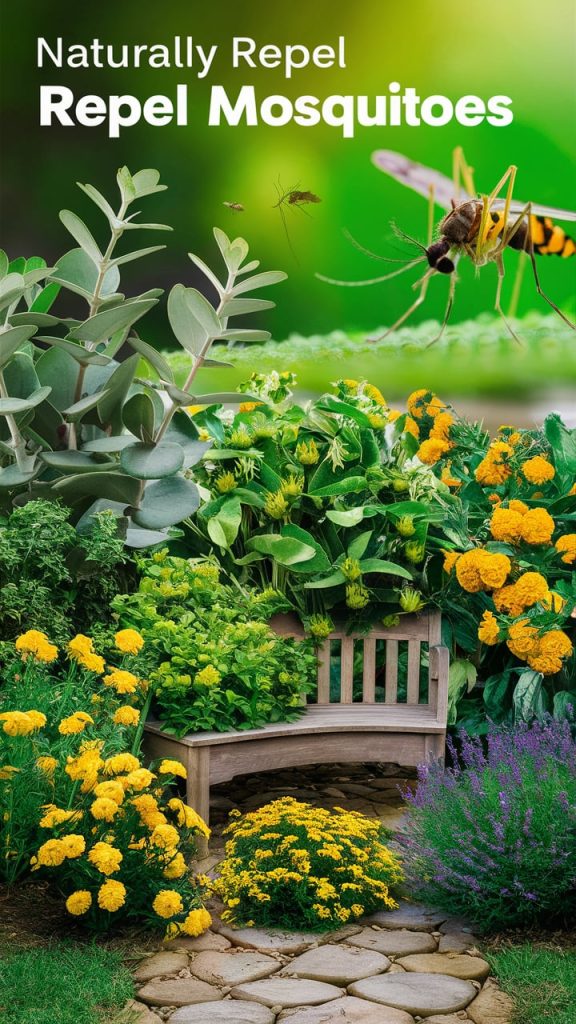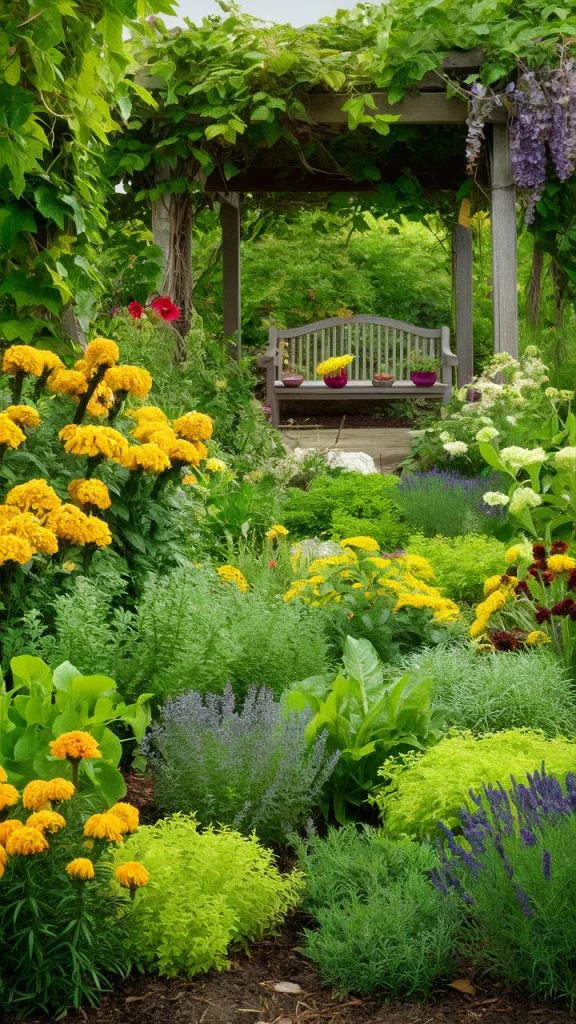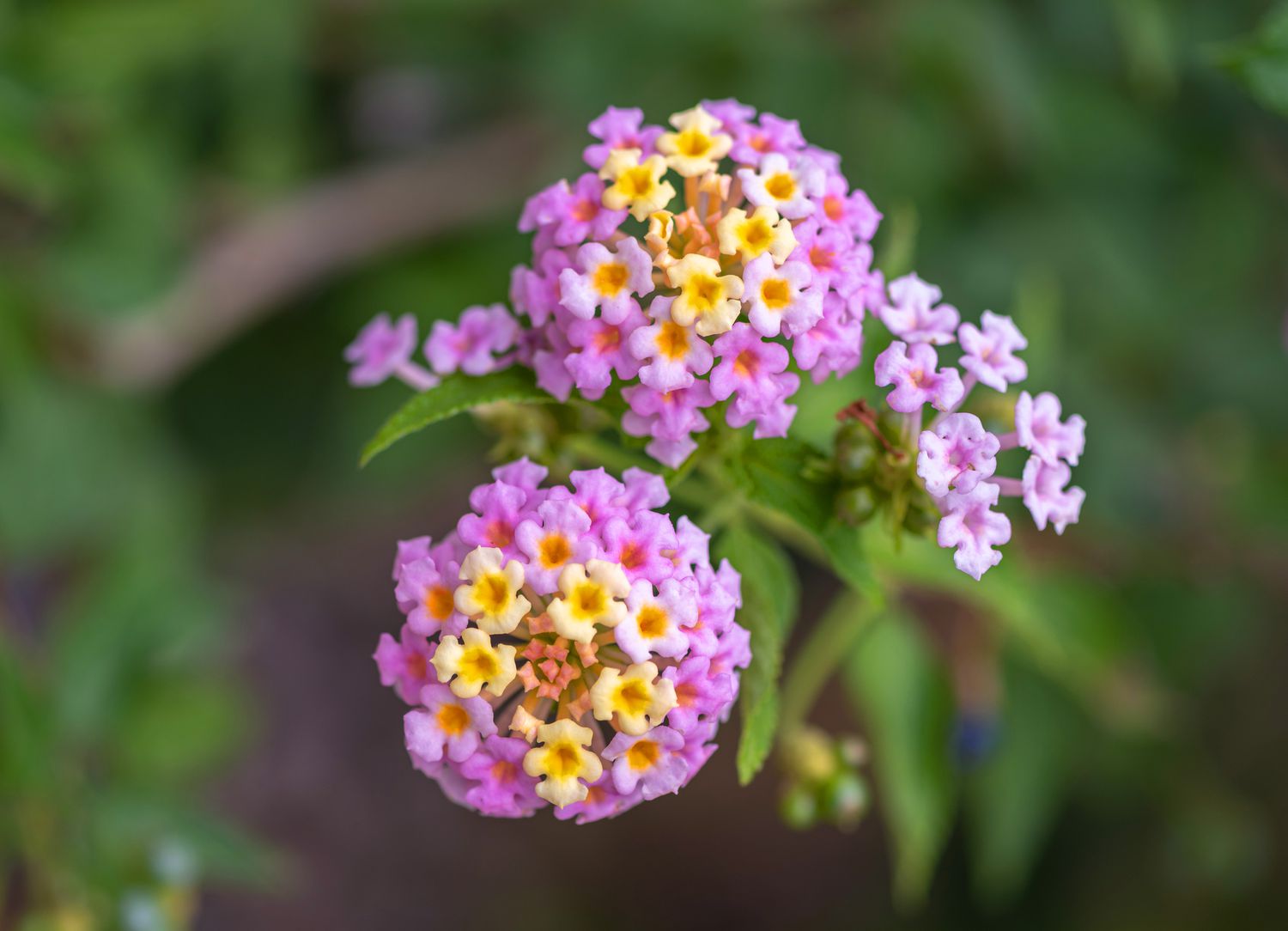15 Plants That Repel Pesky Mosquitoes
15 Plants That Repel Pesky Mosquitoes As the sun sets on a warm summer evening, nothing can ruin the ambiance of your garden quite like the persistent hum of mosquitoes. These tiny pests are more than just a nuisance—they can carry diseases and make outdoor activities unbearable. Fortunately, nature provides a solution. By incorporating certain…
15 Plants That Repel Pesky Mosquitoes
As the sun sets on a warm summer evening, nothing can ruin the ambiance of your garden quite like the persistent hum of mosquitoes. These tiny pests are more than just a nuisance—they can carry diseases and make outdoor activities unbearable. Fortunately, nature provides a solution.
By incorporating certain plants into your garden or patio, you can create a natural barrier against mosquitoes. These plants, with their aromatic leaves and oils, act as powerful deterrents, ensuring that your time outdoors is peaceful and bug-free.

Citronella: The Renowned Mosquito Repellent
One of the most well-known plants for repelling mosquitoes is Citronella (Cymbopogon nardus). Often referred to as the “mosquito plant,” Citronella is a type of scented geranium that exudes a strong citrus aroma, which mosquitoes find offensive. This plant can be grown in containers or directly in the ground, making it a versatile option for any garden.
Not only is Citronella effective at keeping mosquitoes at bay, but it also adds a lovely, lush green presence to your landscape. For best results, plant Citronella near seating areas where the aroma can spread and protect you from these unwelcome visitors.
Lavender: A Fragrant Guardian
Lavender (Lavandula) is not just a beautiful, fragrant addition to your garden—it’s also a powerful mosquito repellent. The essential oils found in lavender are toxic to many species of insects, including mosquitoes. As you enjoy the soothing scent of lavender, mosquitoes will be driven away by the same fragrance.
Lavender is also incredibly easy to grow; it thrives in sunny spots with well-drained soil and requires minimal maintenance. This drought-tolerant plant is perfect for garden borders, and its striking purple flowers add a pop of color to any landscape while protecting you from mosquito bites.
Lemongrass: A Citrus Scented Shield
Lemongrass (Cymbopogon citratus) is another plant that’s highly effective at repelling mosquitoes. This tall, grassy plant is rich in citronella oil, the same substance that’s commonly used in mosquito-repellent candles.
When you crush the leaves of lemongrass, they release a potent citrus scent that masks the human odors that attract mosquitoes. Lemongrass is not only functional but also adds an exotic touch to your garden. It’s best planted in large containers or as a border plant where it can thrive in full sun and provide continuous mosquito control.
Marigold: The Colorful Protector
Marigolds (Tagetes) are more than just bright, cheerful flowers; they are also effective mosquito repellents. These annuals contain pyrethrum, a substance used in many insect repellents. The strong scent of marigolds is unpleasant to mosquitoes, making them steer clear of areas where these flowers are planted.
Marigolds are easy to grow and thrive in full sun, making them an excellent addition to garden beds, borders, and containers. Plant them around outdoor seating areas and near doorways to create a barrier that mosquitoes won’t want to cross.
Basil: Culinary Herb with a Bonus
Basil (Ocimum basilicum) is a staple in many kitchens, but it’s also a powerful mosquito repellent. This aromatic herb emits a strong scent that deters mosquitoes and flies. Basil is versatile and can be grown in pots, garden beds, or as part of a window box.
Not only will it keep mosquitoes at bay, but it will also provide fresh leaves for your favorite recipes. For best results, place basil plants around your patio or near windows and doors to prevent mosquitoes from entering your home.
Peppermint: A Refreshing Repellent
Peppermint (Mentha piperita) is another herb that mosquitoes can’t stand. The strong menthol scent is overpowering to these insects, making peppermint an excellent natural repellent. Peppermint is easy to grow and spreads quickly, so it’s best to plant it in containers to prevent it from taking over your garden.
The leaves can also be crushed and rubbed on the skin for a quick and natural mosquito repellent. In addition to its mosquito-repelling properties, peppermint is a wonderful addition to teas, desserts, and savory dishes.
Rosemary: A Herb with a Strong Defense
Rosemary (Salvia rosmarinus) is a fragrant herb that mosquitoes find highly unappealing. The woody scent of rosemary is a natural deterrent to many insects, including mosquitoes.
This hardy plant thrives in hot, dry conditions and can be grown in containers, garden beds, or as a decorative hedge. Rosemary’s versatility makes it a great choice for any garden, and its leaves can be used in cooking or for adding a fresh, herbal aroma to your outdoor spaces.

Mint: A Versatile Mosquito Deterrent
Mint (Mentha spp.) is another member of the mint family that is highly effective at repelling mosquitoes. The strong aroma of mint is enough to keep these pests at a distance. Like peppermint, mint spreads quickly, so it’s best grown in containers. Mint can also be used in a variety of culinary dishes, making it a practical and functional addition to your garden. To enhance its mosquito-repelling properties, you can crush the leaves and rub them on your skin or place crushed leaves around seating areas.
Bee Balm: A Flower That Packs a Punch
Bee balm (Monarda) is a beautiful flowering plant that attracts pollinators like bees and butterflies but repels mosquitoes. The strong fragrance of bee balm is enough to keep mosquitoes at bay, making it a great choice for garden beds and borders. Bee balm thrives in full sun and well-drained soil, and its vibrant flowers add a splash of color to any garden. Plant bee balm near your outdoor seating areas to create a mosquito-free zone.
Allium: The Onion Family’s Secret Weapon
Allium, which includes onions, garlic, and chives, is not just for the kitchen. The strong odor of allium plants is a natural mosquito deterrent. These plants are easy to grow and can be incorporated into your garden as borders, in vegetable plots, or in containers.
Allium plants are also beautiful in bloom, with their large, spherical flowers adding architectural interest to your garden. The best part? While you enjoy the beauty and flavor of allium, mosquitoes will be nowhere to be found.
Eucalyptus: A Refreshing Repellent
Eucalyptus (Eucalyptus spp.) is known for its refreshing scent and is often used in essential oils for its therapeutic properties. This same scent is highly repellent to mosquitoes. Eucalyptus can be grown in containers or as a tree, depending on the climate.
The leaves can also be crushed and used in homemade mosquito repellents. Eucalyptus requires full sun and well-drained soil to thrive and can be a stunning addition to your garden while keeping mosquitoes away.
Lantana: A Vibrant Mosquito Barrier
Lantana (Lantana camara) is a tropical plant with clusters of brightly colored flowers that bloom throughout the summer. The strong scent of lantana leaves is enough to deter mosquitoes from coming close. Lantana is easy to grow and thrives in hot, sunny conditions.
It can be planted in garden beds, containers, or hanging baskets. In addition to repelling mosquitoes, lantana also attracts butterflies and hummingbirds, making it a beautiful and functional addition to any garden.
Lemon Balm: A Lemony Mosquito Repellent
Lemon balm (Melissa officinalis) is a member of the mint family and has a strong lemon scent that mosquitoes find unpleasant. This perennial herb is easy to grow and can be planted in garden beds or containers. Lemon balm is also a great plant to have on hand for making teas and other herbal remedies. To keep mosquitoes away, crush the leaves and rub them on your skin or place the crushed leaves around outdoor seating areas.
Mojito Mint: A Refreshing Way to Repel Mosquitoes
Mojito mint (Mentha x villosa) is a variety of mint that’s commonly used in cocktails, but it’s also an effective mosquito repellent. The strong, minty aroma of mojito mint is enough to keep mosquitoes at bay, making it a great addition to your garden or patio. Mojito mint is easy to grow and can be used in a variety of culinary dishes as well. To enhance its mosquito-repelling properties, crush the leaves and rub them on your skin or place crushed leaves around seating areas.
Parsley: An Unexpected Mosquito Repellent
Parsley (Petroselinum crispum) is often overlooked as a mosquito repellent, but this common herb has a strong scent that mosquitoes find unpleasant. Parsley is easy to grow and can be planted in garden beds, containers, or as a border plant. In addition to repelling mosquitoes, parsley is a versatile herb that can be used in a variety o
f culinary dishes. To keep mosquitoes away, crush the leaves and rub them on your skin or place the crushed leaves around outdoor seating areas.
Conclusion
By incorporating these 15 plants into your garden, you can create a natural, effective barrier against mosquitoes. Not only will these plants help to keep your outdoor spaces bug-free, but they will also add beauty, fragrance, and flavor to your garden.
Whether you choose to plant them in garden beds, containers, or as borders, these plants are a great way to naturally protect yourself from mosquitoes while enjoying the beauty and bounty of your garden.
